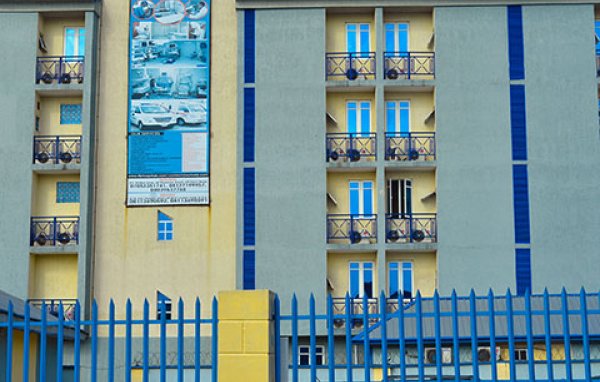LAGOS, Nigeria, October 18, 2022/APO Group/ —
Today, the U.S. Trade and Development Agency announced that it has awarded a grant to Nigeria’s Lily Hospitals Limited for a feasibility study to support the refurbishment and operation of 10 healthcare facilities in Nigeria. These facilities, located in multiple urban hubs across the country, will serve up to 25,000 patients annually. Lily selected Maryland-based Anadach Consulting Group, LLC, to conduct the study.
“Promoting access to quality healthcare services is a top priority for USTDA in Nigeria,” said Enoh T. Ebong, USTDA’s Director. “Our partnership with Lily will provide the company with the necessary analysis to make informed decisions in support of its healthcare delivery priorities. At the same time, USTDA’s engagement will help create opportunities for U.S. companies to supply the technologies and services that these healthcare facilities will require.”
We are committed to improving access to good quality and affordable care to Nigerians
USTDA’s study will assess and recommend the most suitable healthcare facilities for Lily to refurbish and integrate into its existing network of facilities. The project will increase access to modern, quality healthcare systems at a lower cost and in a shorter timeframe than commissioning and constructing new healthcare facilities.
“This USTDA grant is very timely. It supports our expansion strategy of reactivating underperforming healthcare facilities. This will revitalize neighborhoods, create employment opportunities, support investment, and contribute to economic growth,” said Dr. Austin Okogun, Lily’s CEO. “This project will allow more healthcare professionals to contribute to their communities, while offering partnerships and franchise opportunities to medical and related clinical experts. It will also offer opportunities for U.S. companies to supply the high-quality technologies that these facilities will require. Above all else, we are committed to improving access to good quality and affordable care to Nigerians.”
USTDA’s announcement of grant funding for Lily’s feasibility study took place at the U.S. Embassy in Abuja, where the Agency announced a total of three new grant activities to advance healthcare access in Nigeria and across Africa.
Nigerian Minister of Health, Dr. Osagie Ehanire, commented: “[USTDA’s grantees] will be equipped with more tools to develop their programs, be it as top-notch cancer treatment centers or other related services that address urgent healthcare needs in our country. A closer relationship with USTDA will also allow recipient organizations to draw on highly valued U.S experience in healthcare and build lasting partnerships that improve national and global health.”
USTDA’s assistance to Lily advances one of the key pillars of the Biden-Harris Administration’s Partnership for Global Infrastructure and Investment , which aims to strengthen global health security through investments in patient-centered health services. The project also advances the U.S. government’s Prosper Africa initiative to substantially increase two-way trade and investment between the United States and Africa.








OTHER ARTICLES
Editorial — Prevent, inform, and act for women’s health in Africa
Kenya : Government Prioritises Maternal Health and Strengthens Support for Community Health Promoters
Strengthening pandemic prevention, preparedness, and response capacities in Senegal using the “One Health” approach